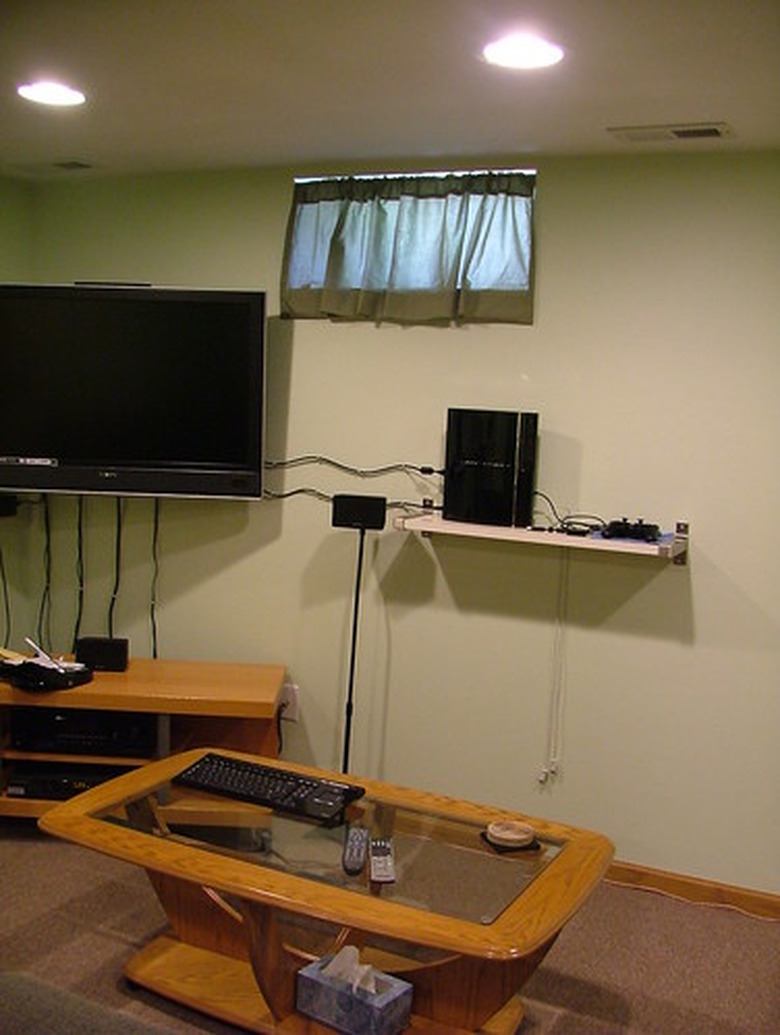The Average Cost Of A Basement
Adding a basement to a new home can create space for rooms or a drive-under garage. A basement adds value to virtually any home. However, issues with an extremely steep or rock-filled lot can make the price of a basement exorbitant. Cliffside homes or mountain homes can have these issues. But, a typical basement is affordable and well worth the investment.
Basement vs. Crawlspace
Basement vs. Crawlspace
Basements requiring a foundation, cinderblock walls, concrete floor and moisture prevention techniques run $7,000 to $10,000 for a house that is 1,800 square feet. Cost is roughly $6 per square foot. This includes digging the basement, building materials, basement windows and waterproofing. Building a crawlspace versus a basement will save a minimum of $3,000 for a new home, largely because it requires no concrete floor.
Cost to Finish a Basement
Cost to Finish a Basement
Homeowners will pay between $60 and $120 per square foot to finish an existing basement. Adding rooms for children, a home theater, spare bedroom or workout area is relatively easy. Basic sheetrock, studs and paint work for remodeling any basement cost close to $60 per square foot. But the cost starts to climb if the project includes high-end tile work, hardwood flooring, wall coverings and upscale plumbing and lighting fixtures.
Research Your Contractor
Research Your Contractor
A poorly constructed basement will crack sooner or later. Repairs can be costly or next to impossible to fix. When building a new house, make sure a contractor overseeing basement construction is highly recommended. Your foundation is literally holding up the weight of your house. If you are acting as your own general contractor on new construction, call expert builders in your area to get names of professionals fully qualified to manage the excavation problems and construction of a new basement. If necessary, pay more to get the best qualified contractor.
Moisture Control Measures
Moisture Control Measures
During new construction, go onsite to make sure a contractor follows through on implementing moisture prevention and barriers for your new basement. Don't allow a builder to seal the interior of your basement walls. This can trap moisture in the blocks. Instead, make sure a new basement is properly sealed from the exterior. If your basement already exists and it's leaking water, you will need to carefully clean out cracks and fill with stiff mortar or concrete. Then, seal the interior with a waterproofing mixture. A new type of drywall called densglass is highly moisture resistant. It can be nailed directly to concrete walls with no furring strips.
Special Needs
Special Needs
Cliffside homes or mountain homes can require steel support both horizontally and vertically in the form of steel beams. This can add $30,000 to 40,000 to the price of a 3,500-square-foot home. Basements that are deeper than 12 feet should ideally be made of solid concrete. Don't allow any house to be built too deep into the ground. Make sure the top of the foundation is a minimum of 18 inches above the highest point of soil.
